The treatment of alkyl chlorides with aqueous KOH leads to the formation of alcohols but in the presence of alcoholic KOH, alkenes are major products. Explain.
In aqueous solution, KOH is almost completely ionized to give OH− ions which being a strong nucleophile brings about a substitution reaction on alkyl halides to form alcohols. Further in the aqueous solution, OH− ions are highly solvated (hydrated). this solvation reduces the basic character of OH− ions which, therefore, fail to abstract a hydrogen from the β-carbon of the alkyl chloride to form an alkene.
In contrast, an alcoholic solution of KOH contains alkoxiide (RO−) ions which being a much stronger base than OH− ions preferentially eliminates a molecule of HCl from an alkyl chloride to form alkenes.
Topper's Solved these Questions
- HALOALKANES AND HALOARENESBook:PRADEEPChapter:HALOALKANES AND HALOARENESExercise:NCERT EXEMPLAR PROBLEMS WITH ANSWERS, HINTS AND SOLUTIONS (MULTIPLE CHOICE QUESTIONS-I)
Explore 30 Videos
- HALOALKANES AND HALOARENESBook:PRADEEPChapter:HALOALKANES AND HALOARENESExercise:NCERT EXEMPLAR PROBLEMS WITH ANSWERS, HINTS AND SOLUTIONS (MULTIPLE CHOICE QUESTIONS-II)
Explore 11 Videos
- HALOALKANES AND HALOARENESBook:PRADEEPChapter:HALOALKANES AND HALOARENESExercise:NCERT QUESTIONS AND EXERCISES WITH ANSWERS (NCERT INTEXT UNSOLVED QUESTIONS)
Explore 9 Videos
- GENERAL PRINCIPLES AND PROCESSES OF ISOLATION OF ELEMENTS Book:PRADEEPChapter:GENERAL PRINCIPLES AND PROCESSES OF ISOLATION OF ELEMENTS Exercise:Curiosity Questions
Explore 2 Videos
- ORGANIC COMPOUNDS CONTAINING NITROGENBook:PRADEEPChapter:ORGANIC COMPOUNDS CONTAINING NITROGENExercise:IMPORTANT QUESTIONS FOR BOARD EXAMINATION
Explore 27 Videos
Similar Questions
The treatment of alkyl chlorides with aqueous KOH leads to the formation of alcohols but in the presence of alcoholic KOH, alkenes are major products. Explain.
View SolutionThe treatment of alkyl chloride with aqueous KOH leads to formation of alcohols but in the presence of alcoholic KOH, alkenes are major products. Explain.
View Solution
Knowledge Check
Haloalkane in the presence of alcoholic KOH undergoes
AeliminationBpolymerizationCsubstitutionDdimerization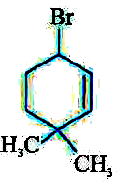 on treatment with aqueous KOHA
on treatment with aqueous KOHA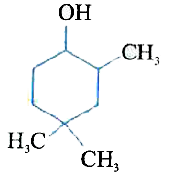 B
B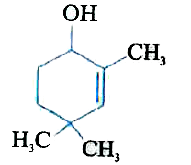 C
C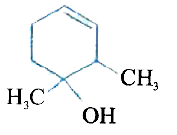 D
D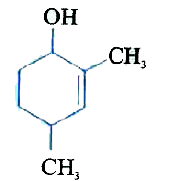
2-Chlorobutane on treatment with alcoholic KOH/Δ gives major product :
A2-ButeneB1-ButeneC2-ButanolD1-Butyne
The treatment of alkyl chlorides with aqueous KOH leads to the formation of alcohols but in the presence of alcoholic KOH, alkenes are major products. Explain.
View Solutiona. The treatment of RX with aqueous KOH leads to the information of alcohols but in the presence of alcholic KOH or NaOH, alkenes are the major products. Expalin why.
b. CHF3 is less acidic than CHCl3. Explain.
c. Wurtz reaction in case of tert-alkyl halide fails. Explain.
d. Dipole moment of C6H5Cl is lower than that of C6H11Cl (cuclohexul choride). Expalin why.
e. Why should Grignard reagent be prepared under anthydrous conditions?
f. Why does p− dichlorobenzene have higher melting point and lower solubility than o− and m− isomers ?
View SolutionThe reaction of chloroform with alcoholic KOH and p-toluidine form-
View SolutionThe reaction of chloroform with alcoholic KOH and p-toluidine forms :
View SolutionThe reaction of ammonia with methyl chloride in the presence of alcoholic KOH is called _________ reaction.
View Solution

